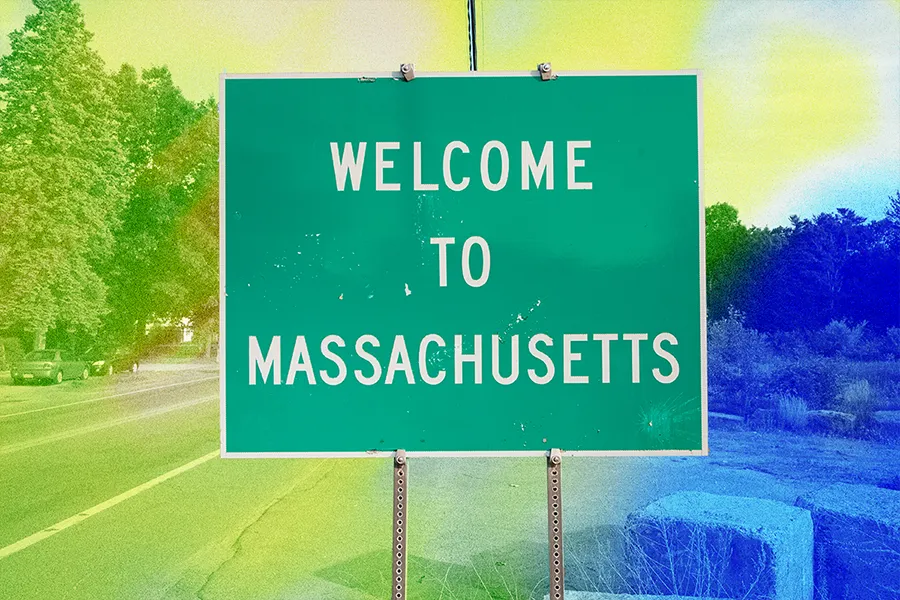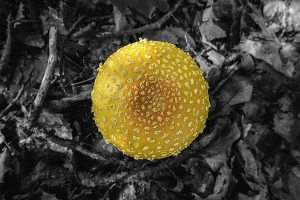Massachusetts’ psychedelic policy hasn’t gotten as much attention as Oregon or Colorado, but more city councils in the state have decriminalized than anywhere else in the country. Since early 2021, the city councils of Somerville, Cambridge (of Harvard University), Northampton, Easthampton, and Amherst have passed measures put forward by grassroots community group Bay Staters, to effectively decriminalize all drugs, including entheogenic plants and fungi. Last week, in a council vote, Salem — known for its deadly 17th-century witch trials — decriminalized psilocybin, making it the sixth city in the state to do so.
Local authorities cannot repeal state or federal laws but law enforcement agencies can be told to place the policing of psychedelics among its least important priorities—though some discretion is retained, as illustrated by the raid and crack down on mushroom church Zide Door in 2020, in Oakland, which had decriminalized.
In April, Bay Staters worked with a conservative Republican and former police officer, State Representative Nicholas Boldyga, to file a new round of bills in the Massachusetts legislature, known as the general court. They would legalize psilocybin treatment; legalize possession of2g of psilocybin (which translates to more than 100g of magic mushrooms), 40 doses of DMT, eight doses of mescaline, and one trip’s worth of ibogaine; and permit MDMA treatment, subject to federal approval.
READ: Where Are Magic Mushrooms Legal?
“It’s time we flip the script and end the insanity,” says Boldyga, who introduced the proposals which await discussion in the senate judiciary committee. “Psychedelic compounds and plant medicines are offering hope and healing to those that were once hopeless … The old profit driven systems will begin to give way to new systems that put the wellbeing of people first, treat disease at its root cause, and have positive outcomes.”
Somerville resident Sarah Hinzman told local press when the decriminalization measure passed: “These pharmaceuticals are financially driven Band-Aids and they often lead to the addiction we then criminalize the user for. I was privileged enough to access the practice of microdosing psychedelics, and since I’ve stopped taking stimulants daily, my mood has stabilized, and my chronic nerve pain has been reduced.”
Bay Staters worked on proposed legislation filed in January by two Democrats, Representative Lindsay Sabadosa and Senator Patricia Jehlen, to end all criminal charges for possession, use, growing, and non-commercial sharing for the same quantities of the aforementioned psychedelics. Such measures would effectively legalize the home growing of psychedelic plants, while explicitly prohibiting sales “for financial gain.”
How to Grow Shrooms Bundle
Take Both of Our Courses and Save $90!
“That’s done strategically to prevent what we’ve seen with the widespread commercialization of cannabis,” Sabadose told local press. “I think that this might be an interesting and new approach, and I’m very excited to work on it.”
Boldyga has, like former Texas governor Rick Perry, been impressed by stories of veterans and first responders who had suffered with PTSD, substance dependence, and other conditions, and were on the brink of suicide until discovering psychedelics. “The clinical research, hundreds of years of meta-analysis, and countless stories of lives saved doesn’t just serve as a wake-up call, it’s a call to action,” he adds. “Bottomline, it’s about saving lives. By legalizing plant medicines, challenging old stigmas rooted in disinformation, and removing barriers to access.”
The work of politicians like Boldyga, Sabadosa, and Jehlen is only possible thanks to the work of local campaigners who paved the way and demonstrated there is support for measures still considered radical by some.
“We’re backed by ordinary people, and we didn’t start accepting 100% grassroots donations until a few months ago,” says Bay Staters co-founder James Davis. “We should not wait for the federal government to get its act together. Change starts with us, with people who care deeply, standing up in council meetings and saying plant medicines changed our lives.”
READ: Decriminalization versus Legalization: What’s the Difference?
“When people are educated, organized, and speaking to the people in power, it puts pressure on the authorities to leave people alone. At the same time, some members of law enforcement can be a huge ally in this work as a lot of them are fed up with the War on Drugs too.”
Scientists in the state are also stepping up. Massachusetts general hospital—the largest teaching hospital at Harvard medical school—opened its Center for the Neuroscience of Psychedelics in 2021. “Remarkable advances in brain imaging—many pioneered and developed at Mass General—allow scientists the unique opportunity to leverage the world’s most advanced neuroimaging tools and methods to see the neuroplastic effects of psychedelic drugs from neurons to networks,” it says on its website.
Bay Staters says they’re working against a “corporadelic” and lab-focused take over of the psychedelic space, advocating for citizen science and peer education. This led them to help coordinate the MDMA bill which caps treatments at $5,000 amid fears that it could be much more expensive once approved.
“We are strongly opposed to the FDA giving the MAPS corporation a decade-long monopoly on MDMA therapy because it will slow innovation in the space, keep a lot of this work underground, and drain mental health practitioners from the conventional mental health system to serve the very wealthy few,” it said.
Bay Staters says they support a vision different from that of MAPS, the research organization behind the FDA-approved MDMA research, and Decriminalize Nature, a campaign to decriminalize natural psychedelics which began in Oakland and has since inspired similar resolutions across the country. Davis leveraged his experience working for Berkeley council to help volunteers send letters with personal stories to persuade lawmakers. Bay Staters says some 3000 people from “all walks of life” have volunteered with them so far, and that hundreds attend their community events every month. These include mushroom forages, guided meditations, sound baths, potlucks, chai tea socials, and integration circles.
Mollie McGurk, who attended events before volunteering with the organization, says the community events offer a unique safe space for people to speak about their relationship with psychedelics. “For many, it’s the only chance they get to connect with others on that level. Yet they all share this profound, personal connection to psychedelic medicine,” she says. “At the same time, they feel totally disconnected from the state and federal government policy process so this group helps get their voices out.”
Bay Staters is assisting with decriminalization campaigns in Berkeley, California, as well as in Hartford, Connecticut and Burlington, Vermont. It is also in the process of collecting signatures to put a decriminalization measure on the ballot in Massachusetts’ second largest city, Worcester.
McGurk says the approach of the organization, “gives people a voice and an opportunity to be actively involved in the future of something they care so deeply about. I believe this is why the group has expanded into the widespread community that it is—I’m one of many from the surrounding states—and that is why it is so impactful.”

DoubleBlind is a trusted resource for news, evidence-based education, and reporting on psychedelics. We work with leading medical professionals, scientific researchers, journalists, mycologists, indigenous stewards, and cultural pioneers. Read about our editorial policy and fact-checking process here.

DoubleBlind Magazine does not encourage or condone any illegal activities, including but not limited to the use of illegal substances. We do not provide mental health, clinical, or medical services. We are not a substitute for medical, psychological, or psychiatric diagnosis, treatment, or advice. If you are in a crisis or if you or any other person may be in danger or experiencing a mental health emergency, immediately call 911 or your local emergency resources. If you are considering suicide, please call 988 to connect with the National Suicide Prevention Lifeline.



